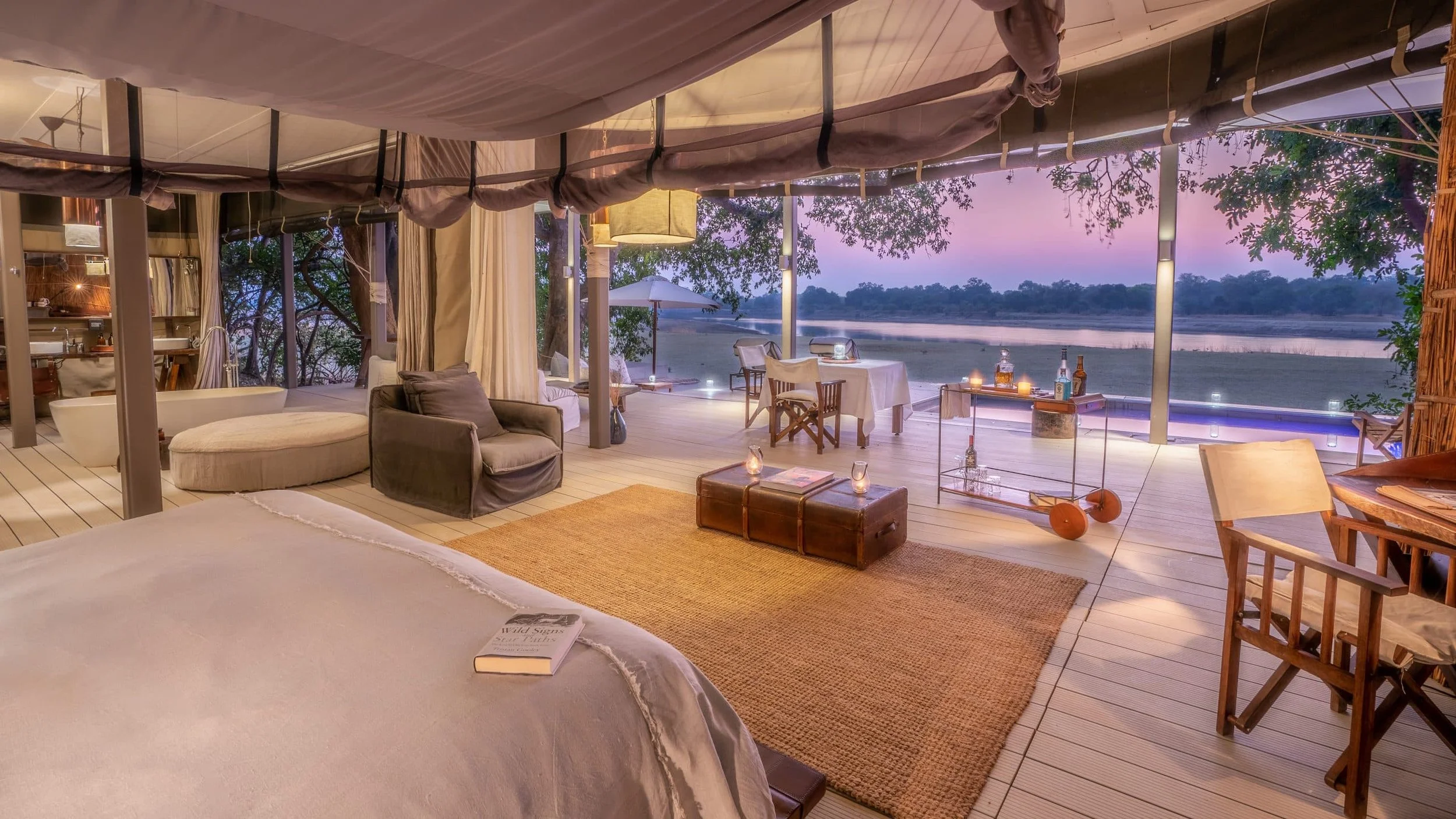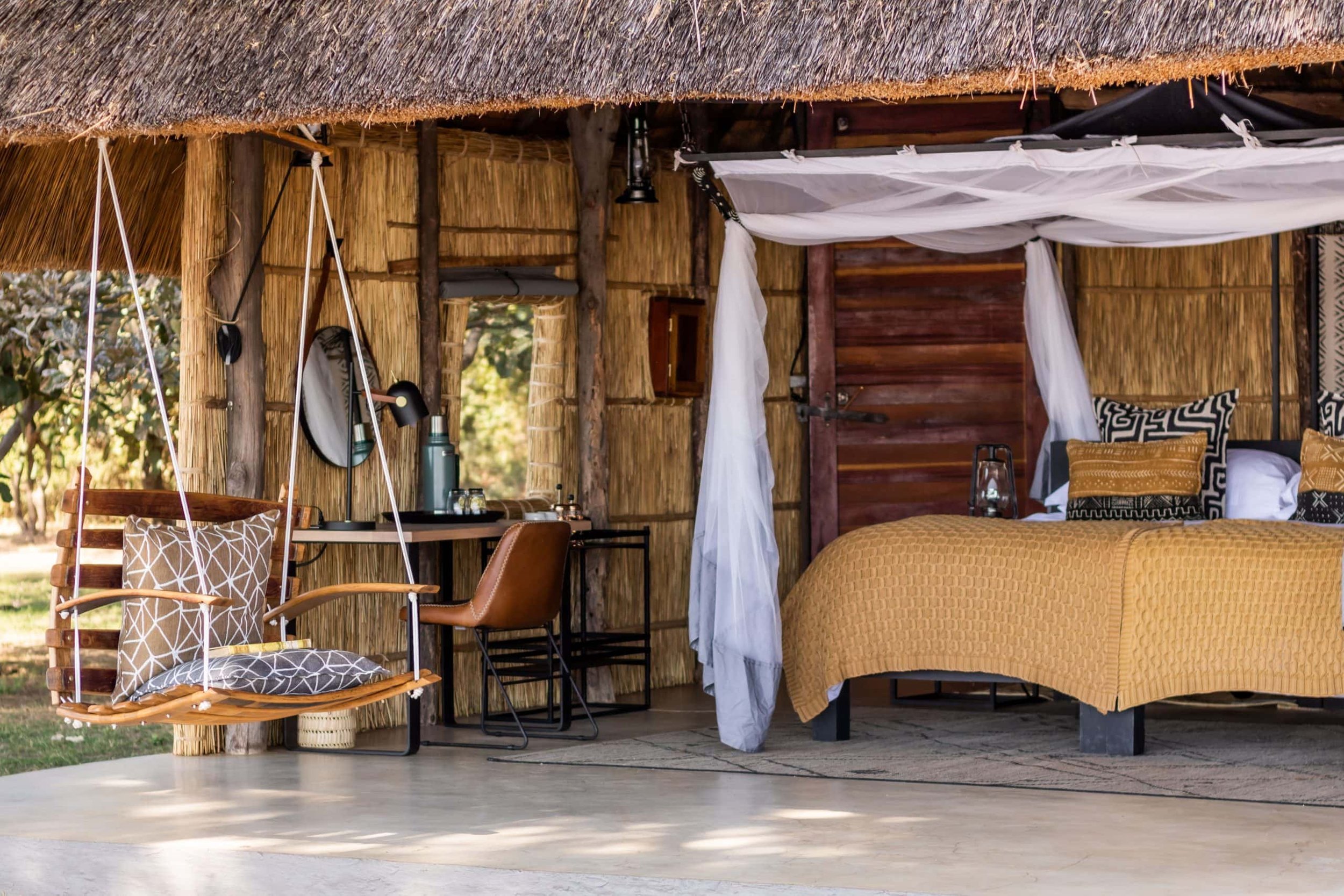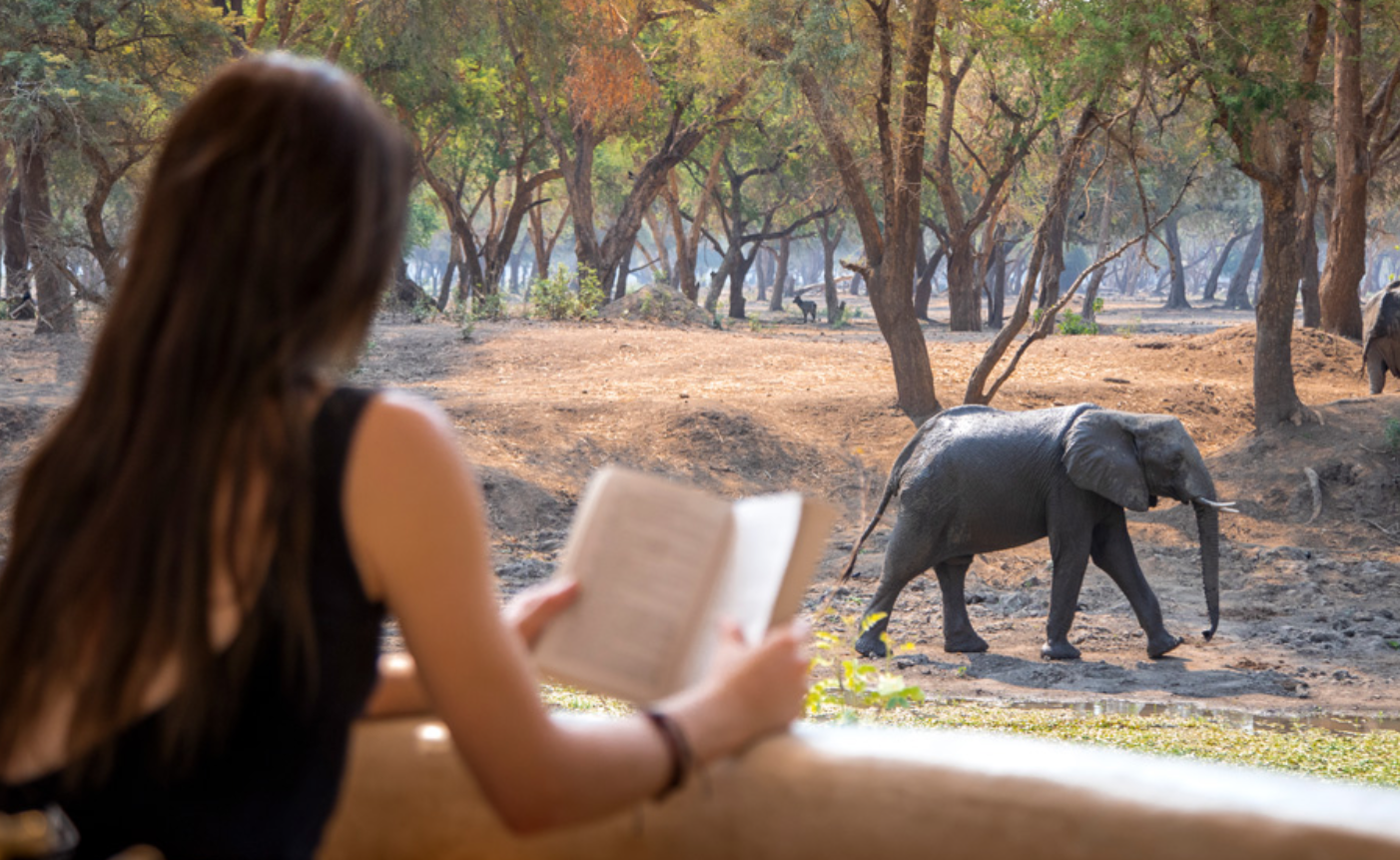
Why Go on a Walking Safari to Zambia?
A walking safari in Zambia offers an unmatched, intimate wildlife experience in Africa’s untouched wilderness. Known as the origin of walking safaris, Zambia's national parks like South Luangwa and Lower Zambezi provide unique opportunities to engage closely with nature. These safaris emphasize eco-tourism and conservation, led by experienced local guides who offer valuable insights into wildlife and ecosystems. The diverse landscapes of Zambia, from riverine areas to rugged valleys, ensure each walking safari is a distinct, educational, and awe-inspiring adventure, connecting visitors deeply with the African wilderness.
Join a Group Walking Safari to Zambia
In 2026 & 2027 we will be taking small groups of just 8 guests to explore the wonder of Zambia.
Want to be part of this once-in-a-lifetime adventure?
5 Reasons You’ll Love Zambia
Pioneers of Walking Safaris: Zambia is renowned as the birthplace of walking safaris, offering an unmatched on-foot wildlife experience. Explore the raw beauty of South Luangwa National Park, where walking safaris allow you to connect with the African bush in a truly authentic way, making it a top destination for safari enthusiasts.
The Untamed Wilderness of South Luangwa: Known as one of the greatest wildlife sanctuaries in the world, South Luangwa National Park is at the heart of Zambia's safari experience. Its diverse habitats are home to an impressive variety of animals and birds, offering exceptional game viewing opportunities.
The Majestic Victoria Falls: One of the Seven Natural Wonders of the World, Victoria Falls is a breathtaking sight on the Zambezi River. While not a traditional wildlife safari destination, the area offers unique safari experiences like river cruises and elephant-back safaris, adding a unique dimension to your African adventure.
Rich Birdlife in the Kafue National Park: As one of the largest national parks in Africa, Kafue National Park boasts a rich tapestry of birdlife, making it a paradise for birdwatching safaris. The park's vast landscapes range from dense forests to vast grasslands, providing habitats for an array of bird species.
Unique Water-based Safaris in the Lower Zambezi: The Lower Zambezi National Park offers a distinctive safari experience with its water-based activities. Canoeing and boat safaris on the Zambezi River provide a different perspective on wildlife viewing, where you can encounter hippos, crocodiles, and a variety of birds up close.
Best Lodges for Walking Safaris in Zambia
Best Areas in Zambia for Walking Safaris
FAQs
-
In Zambia, the official currency is the Zambian Kwacha (ZMW).
The US dollar (USD) is often accepted, particularly at hotels and safari lodges.
-
In Zambia, the standard plug types are Type C, Type D, and Type G. Type C is the two-pin Europlug, Type D is the three-pin plug commonly used in India, and Type G is the British three-pin rectangular plug. The standard voltage is 230V, and the frequency is 50Hz. Travelers should consider bringing a suitable plug adapter and voltage converter if their devices do not match these specifications.
-
The official language is English, which is widely used in government, business, and education. Additionally, Zambia is home to over 70 indigenous languages, with Bemba being the most spoken among them, especially in the Copperbelt and the urban areas of Lusaka.
-
Zambia is generally considered safe for tourists, especially in popular destinations like Livingstone, Lusaka, and national parks. However, as with any travel destination, it's important to exercise common safety precautions.
This includes being vigilant against petty theft, especially in crowded areas, and following safety guidelines during wildlife safaris. Travelers should also stay informed about local health advisories, such as malaria prevention, and check the latest travel advisories from their government for up-to-date information on safety and security.

“You do not know a place until you have walked it”
~Norman Carr












